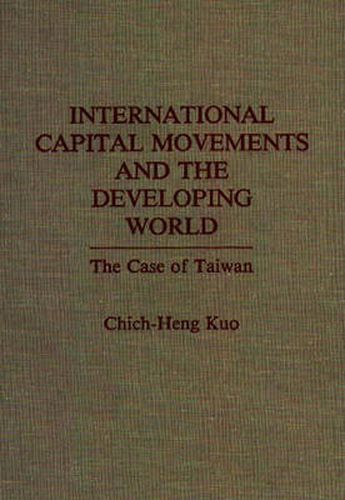Readings Newsletter
Become a Readings Member to make your shopping experience even easier.
Sign in or sign up for free!
You’re not far away from qualifying for FREE standard shipping within Australia
You’ve qualified for FREE standard shipping within Australia
The cart is loading…






While most advanced industrial countries have adopted a liberal approach to the regulation of capital flow, the typical developing countries have been driven to control foreign exchange in order to prevent a flood of speculative capital inflow and retain domestic monetary resources for local development needs. This book examines the Taiwanese experience in balancing controls on foreign capital with domestic development needs in a manner that has stabilized the national economy and created a substantial trade surplus. From his position in the Taiwanese government, Chich-Heng Kuo provides an analysis of the legal framework and policies that have contributed to his country’s success. Kuo begins with a review of international capital flow patterns and suggests standards for national performance and capital markets that will enable policymakers to evaluate the costs and benefits of foreign exchange controls. His appraisal of the role of capital regulation in Taiwanese economic development indicates that encouragement of foreign direct investment and strict controls on outward capital flow have been key factors in creating a strong economy. Kuo describes the gradual reversal of these policies starting in 1986, when Taiwan had begun to accumulate large foreign exchange reserves and needed to focus on foreign investment abroad to cool down inflationary pressures at home. The final chapter explores possible applications for economic development in other countries. Providing legal and policy analysis as well as information on the impact of specific types of regulations, this case study should be useful to policy-makers, professionals, and scholars concerned with international trade, capital, and economic development.
$9.00 standard shipping within Australia
FREE standard shipping within Australia for orders over $100.00
Express & International shipping calculated at checkout
While most advanced industrial countries have adopted a liberal approach to the regulation of capital flow, the typical developing countries have been driven to control foreign exchange in order to prevent a flood of speculative capital inflow and retain domestic monetary resources for local development needs. This book examines the Taiwanese experience in balancing controls on foreign capital with domestic development needs in a manner that has stabilized the national economy and created a substantial trade surplus. From his position in the Taiwanese government, Chich-Heng Kuo provides an analysis of the legal framework and policies that have contributed to his country’s success. Kuo begins with a review of international capital flow patterns and suggests standards for national performance and capital markets that will enable policymakers to evaluate the costs and benefits of foreign exchange controls. His appraisal of the role of capital regulation in Taiwanese economic development indicates that encouragement of foreign direct investment and strict controls on outward capital flow have been key factors in creating a strong economy. Kuo describes the gradual reversal of these policies starting in 1986, when Taiwan had begun to accumulate large foreign exchange reserves and needed to focus on foreign investment abroad to cool down inflationary pressures at home. The final chapter explores possible applications for economic development in other countries. Providing legal and policy analysis as well as information on the impact of specific types of regulations, this case study should be useful to policy-makers, professionals, and scholars concerned with international trade, capital, and economic development.